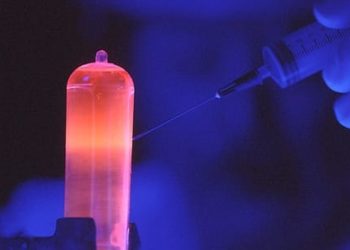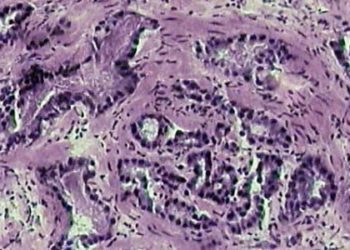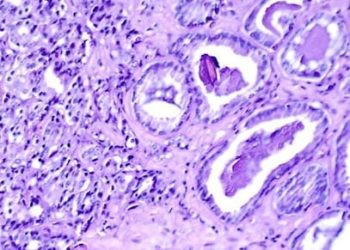Quick Take: Association between androgen deprivation therapy use and diagnosis of dementia in men with prostate cancer
Androgen deprivation therapy (ADT) is used in the treatment of prostate cancer, either alone or in combination with other treatment modalities. ADT, however, is not without long-term effects, with patients commonly experiencing sexual dysfunction, in addition to conferring an increased risk of cardiovascular events. ADT exposure may also increase the risk of cognitive dysfunction. In this retrospective cohort study, 154,089 elderly men diagnosed with prostate cancer (1996-2003) were identified through the National Cancer Institute’s Surveillance, Epidemiology and End Results-Medicare linked database, and followed up to assess the association between ADT exposure and the diagnosis of Alzheimer disease or dementia in this patient population. Researchers found that ADT exposure was associated with a diagnosis of Alzheimer’s disease (difference 3.7%, 95% CI 3.3% to 3.9%, p<0.001; HR 1.20, 95% CI 1.17 to 1.24) and dementia (difference 5.8%, 95% CI 5.4% to 6.2%, p <0 .001; HR, 1.20, 95% CI 1.17 to 1.24). Based on survival analyses, there was also evidence of a dose-dependent association, where the time to outcome was relatively decreased in patients that received 1 to 4 doses of ADT (HR 1.19, 95% CI 1.15 to 1.24 for Alzheimer disease; HR 1.19, 95% CI 1.15 to 1.23 for dementia) compared to those that received 5 to 8 doses of ADT (HR 1.28, 95% CI 1.22 to 1.35 for Alzheimer disease; HR 1.24, 95% CI 1.19 to 1.29 for dementia). This study therefore shows that in elderly patients with prostate cancer, ADT exposure may be associated with an increased risk of Alzheimer’s disease or dementia in later life.
Click to read the study in JAMA Oncology
Image: PD
©2019 2 Minute Medicine, Inc. All rights reserved. No works may be reproduced without expressed written consent from 2 Minute Medicine, Inc. Inquire about licensing here. No article should be construed as medical advice and is not intended as such by the authors or by 2 Minute Medicine, Inc.







